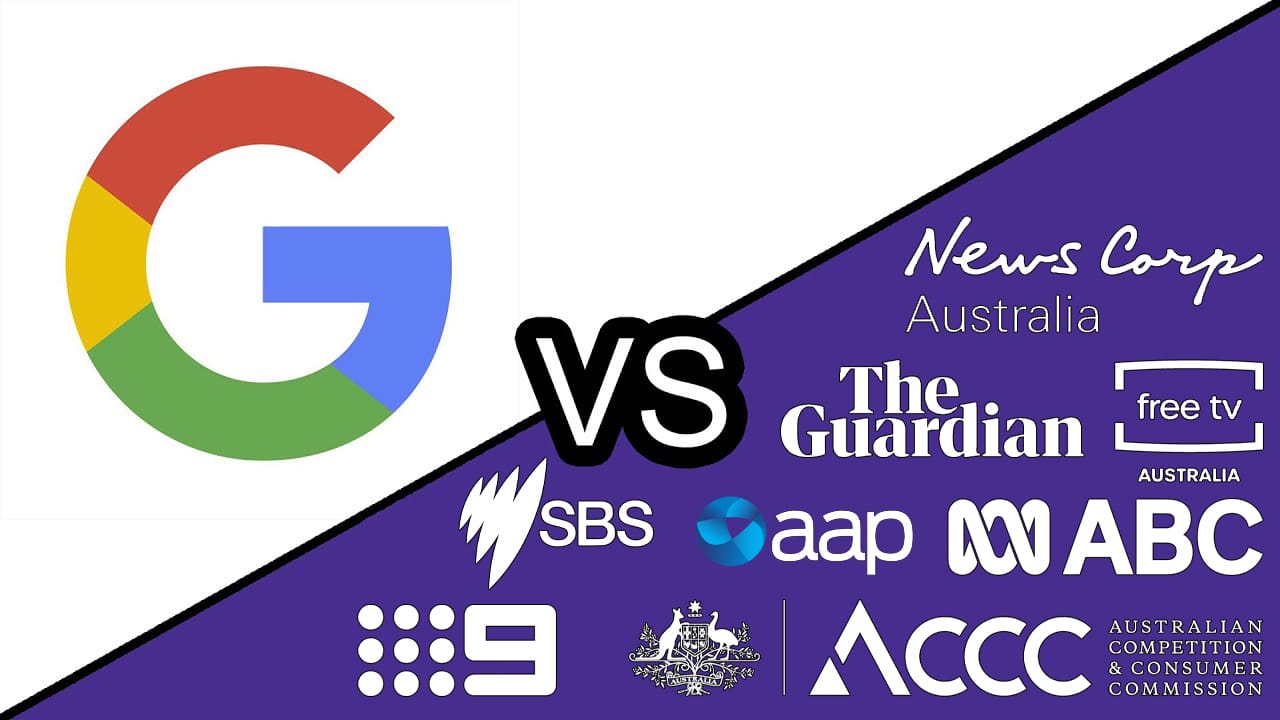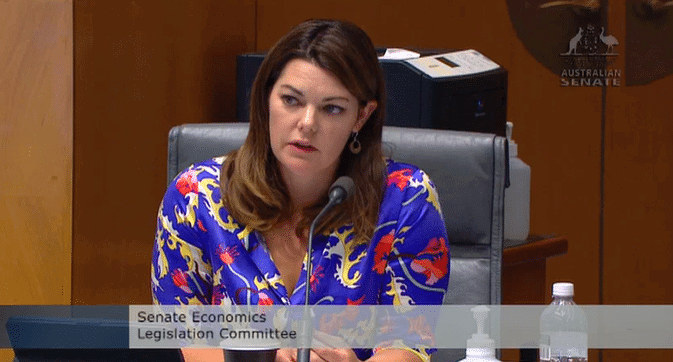Back in August 2020, I wrote about the proposed Treasury Laws Amendment (News Media and Digital Platforms Mandatory Bargaining Code) Bill 2020 and what it means to Australian internet users. After writing the article, I wrote a very long and detailed submission to the Australian Senate Standing Committees on Economics about how the proposed Bill would give Major Australian News Outlets an unfair advantage in search results, corrupt the idea of free and unrestricted internet, the way search engines work, and how it could lead to a devastating withdrawal of Google services from Australia, completely killing the way most internet users, both Australian and international, search for results on everything from locations, news, articles and just about any search topic you could think of. Of course, the Australian Government does what it usually does in these situations: Ignore the people and listen to big business’ like all the Major News Outlets.
Before the Bill gets sent to the House of Representatives to be voted into law, there was a Public Hearing held on January 22, 2021… Well, the public wasn’t involved at all. Instead, the hearing was attended by Google, Facebook, and seven of the most powerful news media corporations in the country. It was a very one-sided affair which saw Google and Facebook representatives got 40 minutes each to plead their cases to the Senate Committee, while the news media corporations got a total of over 3 hours to talk about their issues with Google and why this bill needs to be passed. Long story short: Australian News Media blames Google for falling profits and they demand Google pays and hands over all their company’s inner workings so Australian News Media can be in control of how Google searches work, and get paid for doing so.
The hearing started at 10 am Australian time, with Google first up to speak. As usual, Google Australia representative Mel Silva, the Managing Director of Google Australia, explained things from a technical perspective. She explained that if Google was to pay News media for linking to articles, it would change the way that searching and indexing would work for the whole internet, not just Australia. As if Google pays one company for indexing their links, then everyone would want the same thing, resulting in a search system that goes against the free nature of finding information. The slippery slope would lead to companies demanding to be directly paid, while getting advertising and subscription payments, while pushing for their content to appear first in all searches, leading to a “who pays most gets seen, and paid, more”. This idea is something that is against everything all internet users believe the internet was made for.
Google counter-proposed that Australian news media joins in their Google News Showcase, a program Google will invest AU$1.3 billion in globally over the next three years to help news businesses publish and promote their stories online—paying for their editorial expertise and beyond-the-paywall access to their journalism, rather than for links. While this isn’t the huge payout that news media is wanting, it is much better than trying to bankrupt Google as a company through extortion-style payment tactics… Guess which one News Media wants to pursue? Yep, the extortion-style payment system. Google continued to explain that if the current version of the News Media and Digital Platforms Mandatory Bargaining Code passes and becomes law, then Google will be forced to withdraw their search services from Australia completely in order to maintain the freedom of the internet.
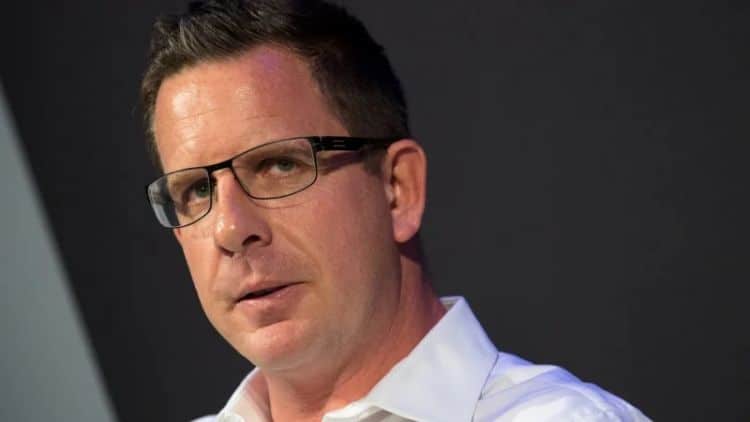
Facebook also joined in the session, basically echoing Google’s statement about how unworkable the proposed media code is. Facebook’s Australian managing director Will Easton said “There’s no other law like this in Australia. No other business is forced into a highly uncertain binding arbitration process where the government decides who enters these agreements and forces payment from the provider of free service”. The result of the proposed media code would force the social media giant to strike up to 1000 deals with publishers in Australia. Mr. Easton said the news media bargaining code could limit Facebook’s ability to launch Facebook News and other products locally. He argued Facebook provided more than $400 million in value to news outlets in the last year through clicks that came from its news feed. “Unfortunately, the latest version still fails to acknowledge the commercial and technical realities of how publishers use Facebook and the value we provide to them,” Mr. Easton said. “It also prevents us from introducing new products unless we roll them out to everyone, which seriously inhibits our ability to bring Facebook News to Australia.”
The proposed laws require tech giants and news outlets to enter a “final offer” arbitration process if they cannot reach commercial agreements within three months. Google and Facebook will also be required to give the news businesses 14 days notice of algorithm changes and non-discrimination provisions have been put in place to stop the tech giants from taking retaliatory action such as removing content or punishing organizations that participate in the code. Australian News Media is pushing for this option because it knows that the arbitration process would end with their interest and demands being forced upon the tech giants by an arbitrator that is practically in the Government, and News Media Companies, pockets.
Mr. Easton said Facebook would ban news from being shared on its main app and Instagram in Australia. Sources familiar with Facebook’s thinking said at the time the tech giant had started looking at ways to remove news articles from its algorithm, this follows Google’s experimentation with removing Australian News Media links from their search algorithms in Australia, a move that Australia News Media has taken to calling a “threat by Google to punish all Australians” in their own publications.
When it came time for the Australian News Media to have their say, and it was a LONG session, they kept things to the same track the entire way: Google was a gatekeeper and profited more from their news articles than the corporations themselves did. Basically, they played the “poor us” victim cards about how Newspaper readership (aka Sales) were down across the board since the world started moving to get their news digitally rather than from an outdated printed medium. Rather than evolve, these companies spent almost 3 hours talking about how they have had to shut down regional and local community newspapers because they couldn’t afford to print and distribute them to the people (Something those types of papers had done as a free service for decades before digital media came about), they couldn’t keep writers on staff like they used to, and how international news media was spreading misinformation about local news thanks to Google working with those outlets to provide those outlets as preferred news links rather than the local sources.
The News Media representatives, none of which I could actually name since their names have been withheld to protect their privacy by them and their mates, continued to push that Google was a monopoly in big technology and is leveraging its position in the internet space to avoid paying taxes to Australian Governments (Even though Google paid $59m in corporate tax last year while reporting revenues over $4b.) which they agree with the Government was not enough. Since News Media contributes around about the same amount to current political parties during election times, of course, they are pushing the Government’s position of making international companies pay more tax to our little corner of the world. This was combined with fear-mongering to the Senate members that Google is looking to pushing the Australian people to avoid paying what they believe is owed to some of the richest corporations in Australia.
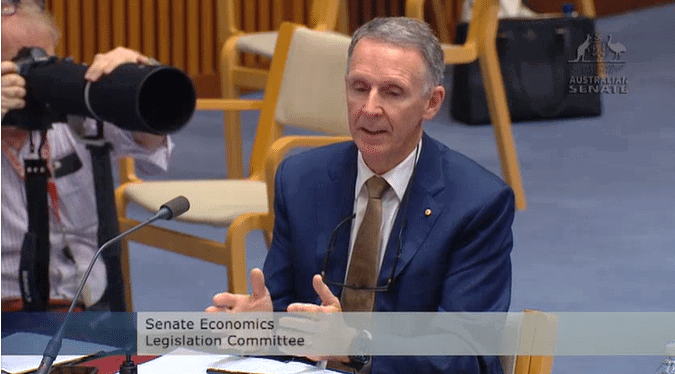
Liberal senator and committee member Andrew Bragg said Google’s “threats and blackmail could not be taken seriously” while it had not put forward its own proposal. “The big tech companies are the railroad and oil companies of the 21st century. They have more power and influence than any other organization at the moment,” he told NCA NewsWire. “The fact that they can’t come up with a decent model that they can live with is a real indictment on them, and shows how arrogant they’ve become, the elected government of Australia isn’t going to give in to the big tech titans.” The Australian Competition and Consumer Commission found Google accounted for 95% of search traffic in Australia, but Mr. Bragg was confident other search engines would “fill the void” if Google carried out its threat. This statement is partly true since tech-savvy users will turn to services like Duck-Duck-Go, a service that provides privacy based search, but general public internet users will probably turn to search engines like Bing, which is owned by Microsoft, a company that is a monopoly in the technology field… But News Media hopes that people will turn to Yahoo, Nine, or other search services that are mainly known, but also either uses Bing to index results or are mirrored by Nine Entertainment’s website.
From here, the questions were very much one-sided. Since the Senate Committee was mostly Liberal (Right-Wing for you Americans) members, the party that is pushing for this code to be made into law ASAP, so the questions were set up for the News Media representatives to spread lies about Google, how the internet works, and how they were the victims in all of this. (Not about how this is a smokescreen about protecting and growing the already large News Media profits.) The lone exception was South Australian Senator Hanson Young, someone I only was able to name because the owner of TechAU (via Twitter) was able to remember her name from when she was introduced. Senator Young called out the News Media for protecting themselves, and their profits, through manipulation tactics in this hearing, calling the News Media of Australia out as being a monopoly in the news sector with only a small handful of owners, mostly international billionaires like Rupert Murdoch, the Packer family, Eddie McGuire, and others. Of course, since the Chair/Head of the Committee was a Liberal stooge, this point was dismissed and Senator Young promptly cut down in her question time.
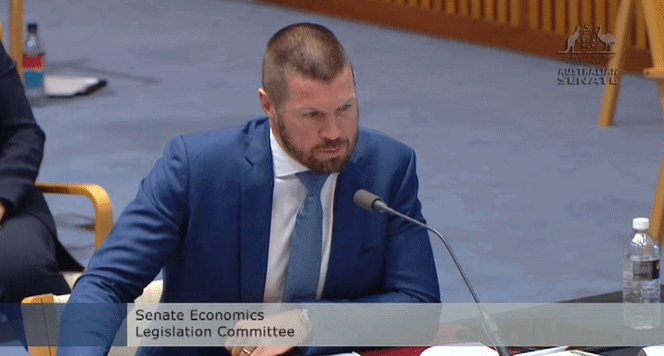
Once the Committee broke for lunch, the hearing returned with members from Australian TV channels and services. The representatives from Free TV (A conglomerate of the main free TV channels: Seven Entertainment, Nine Entertainment, and Ten Entertainment), Special Broadcasting Service (SBS Australia), and several members of the Australian Broadcasting Corporation (ABC) got their chance to basically mimic the contributions of the print media outlets. At this point, I personally tuned out as I was sick of hours of the same bullshit from companies that are only interested in getting paid, not the rights of the Australian people.
The News Media and Digital Platforms Mandatory Bargaining Code Bill 2020 is just that: Mandatory. No matter what companies like Google and Facebook bring to the table as alternatives, or what they wish to have changed to protect the rights of information access for users, the decision has already been made by the Australian Government. Google and Facebook WILL be forced to pay the already profitable Australian News Media a huge amount of money from now till forever because their sites get indexed in a search engine. This crippling bill will either be the straw that causes Google to remove their popular search engine from Australia, and Facebook removes the ability to post any news links on their platform in Australia. The removal of these things means that sites like The Outerhaven, and other smaller news-style websites, will never be seen in Australia again, removing a segment of viewership from all websites, not just those big profitable companies.
There will be one more public hearing on February 1, 2021, at 10 am Australian Eastern Time, and will be available to view live via the Parliament of Australia website. After that, the bill will be sent to the House of Representatives to be voted into law on February 12, 2021. Once it’s passed, Google and Facebook have to face arbitration or be forced to restrict or remove services from Australia… And I might be out of a job.


